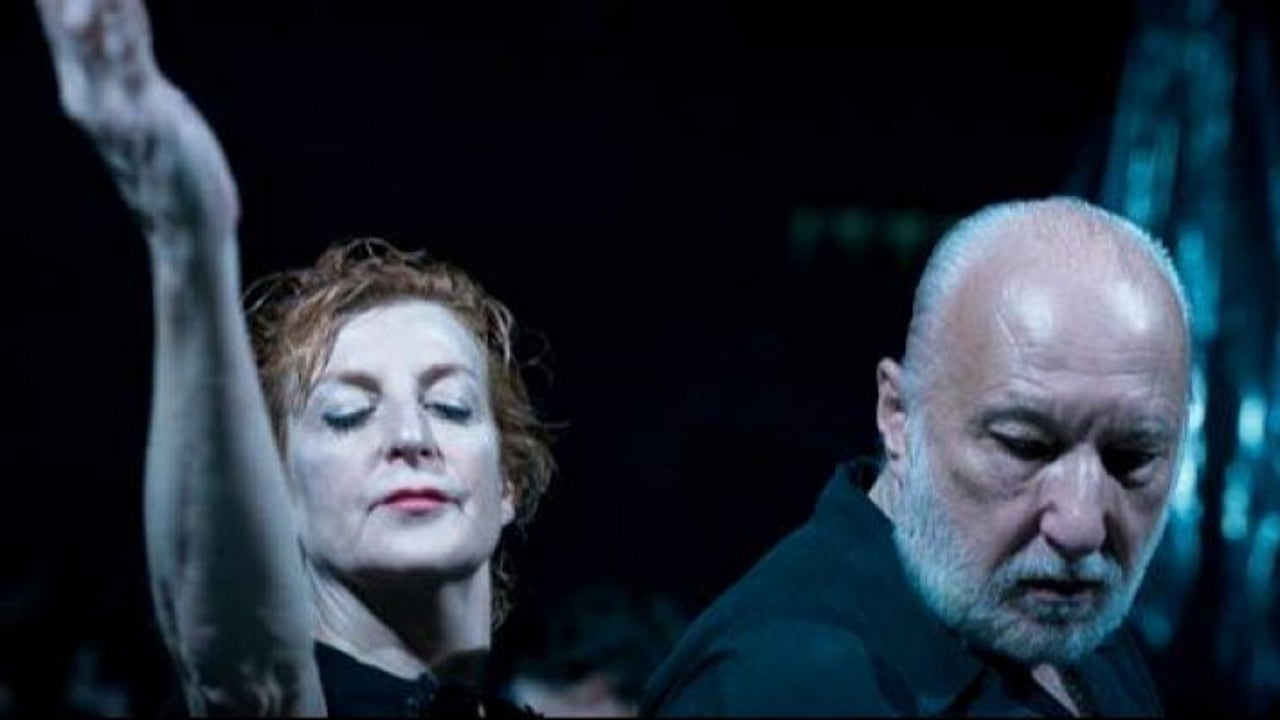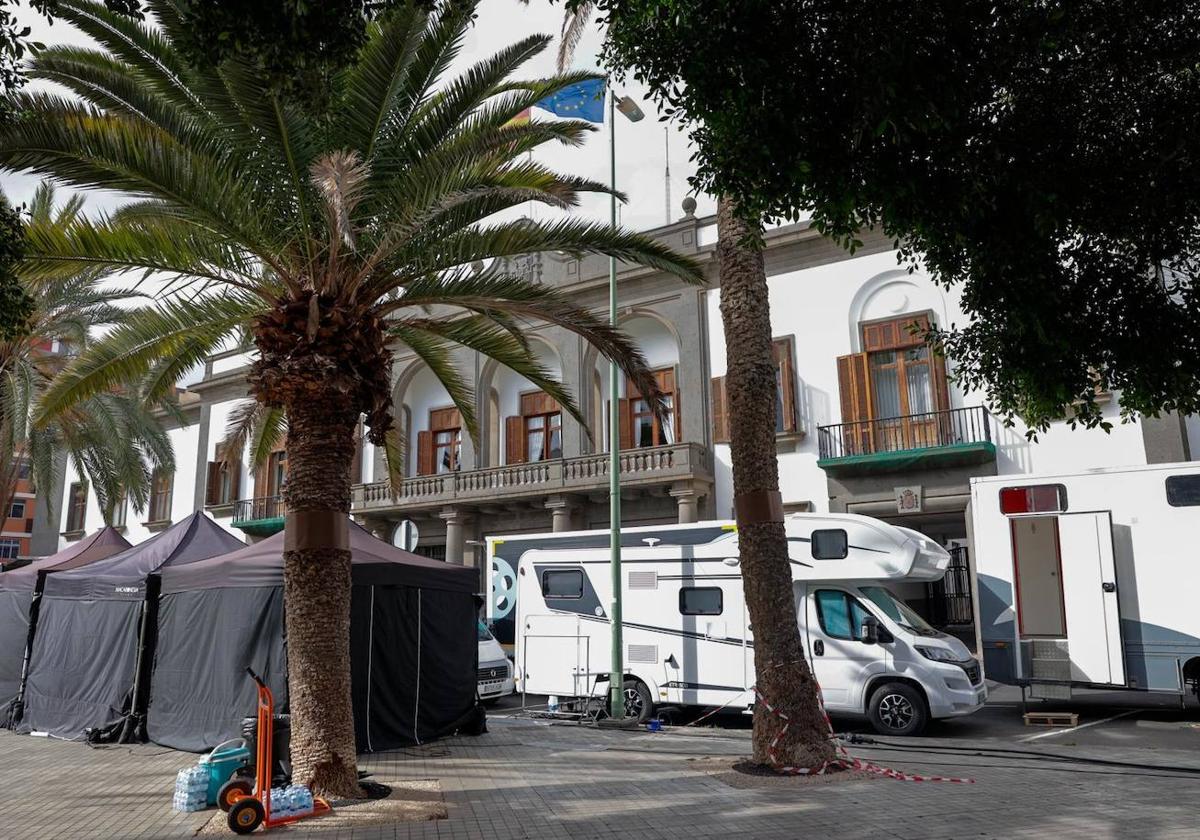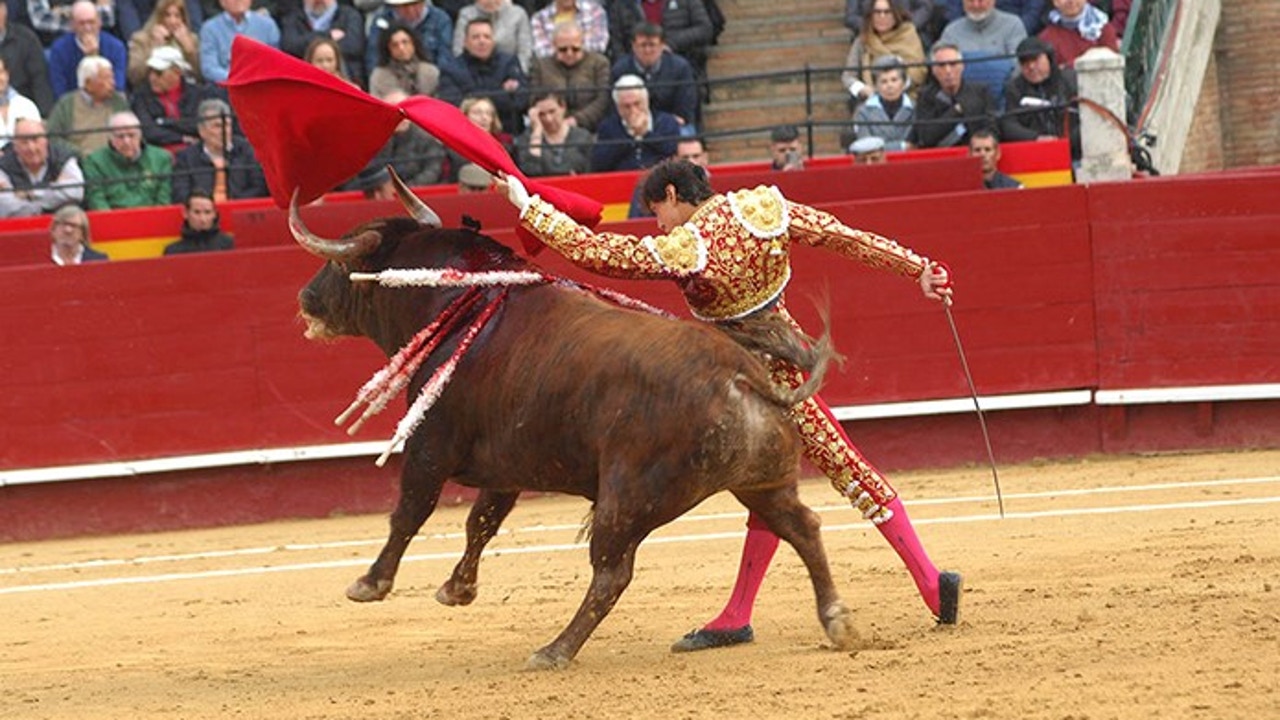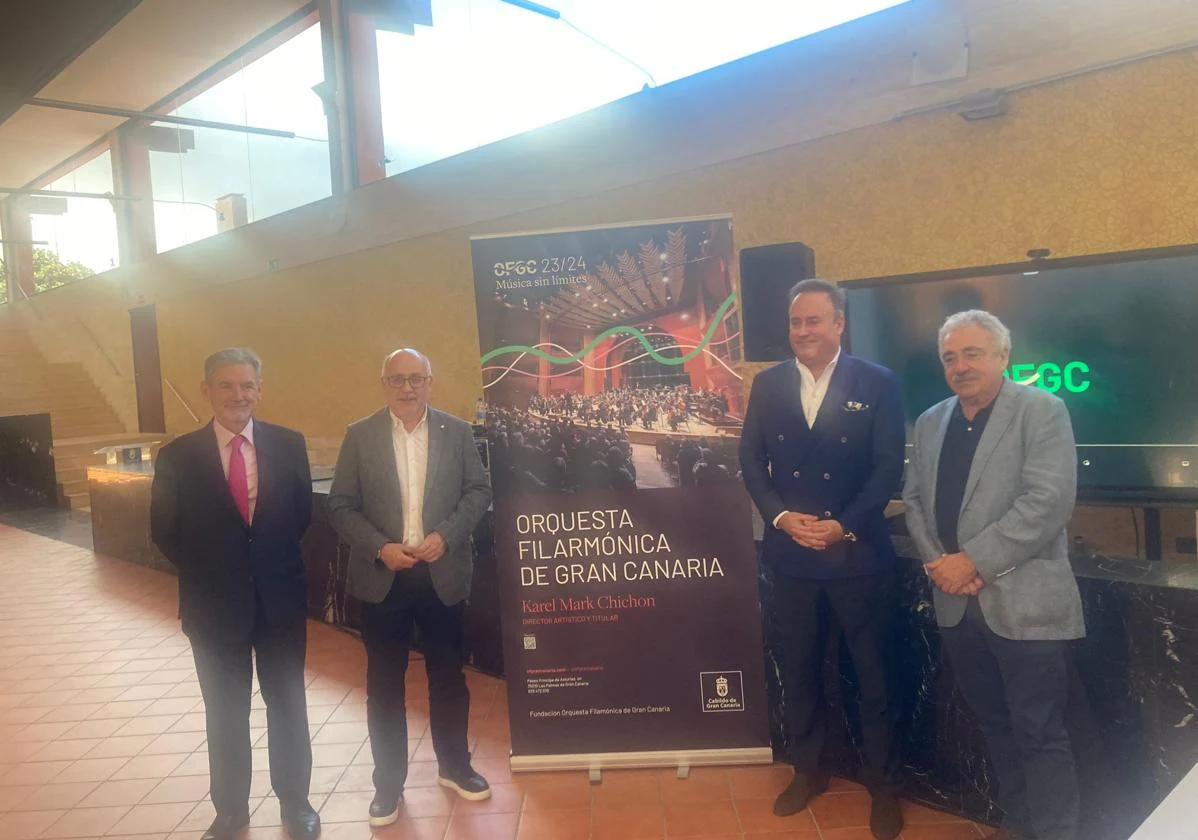JOCAN seeks to endorse its maturity

From left to right, Víctor Pablo Pérez, Juan Márquez and Álvaro Lorente, this Wednesday, at the Guiniguada Theater in the capital of Gran Canaria. /
The highlight of the project is a concert with the Basque Youth Orchestra and the Orfeón Donostiarra, within the Musical Fortnight
The project of the
Young Orchestra of the Canary Islands (JOCAN) faces a challenge that will test his degree of maturity on stage. This summer she stars in a concert tour of the
Basque Country culminating in its premiere, together with the also young Basque group, the Orfeón Donostiarra and their respective female and children's choirs, within the prestigious
Musical Fortnight of San Sebastián.
“These concerts are history for the Young Orchestra of the Canary Islands, it is a highlight”, recognizes the veteran director
Victor Paul Perezwhich will carry the batura of the six recitals in the Basque lands, as well as the two previous evenings that will take place in La Palma and Gran Canaria.
These two concerts in the archipelago
were scheduled for last Christmas, but they had to be suspended due to several positive cases within the JOCAN, recognized Víctor Pablo Pérez and Juan Márquez, Deputy Minister of Culture of the Government of the Canary Islands.
Specifically, they will play
on July 18 in Santa Cruz de La Palma and the next day in the capital of Gran Canaria, with the same repertoire planned for Christmas, which consists of the
Tchaikovsky's 'Violin Concerto' and the
'Symphony No. 1', by Mendelssohn.
Radulović as a soloist
For the very famous piece by Tchaikovsky they will have
Nemanja Radulović as a soloist, a regular musician on the Deutsche Grammophon label. "He is a very promising violinist who plays in a very modern way," says Víctor Pablo Pérez.
The Burgos director stressed that this artist
is very "interested" in this project, which he faces with «a special illusion». "Not only does he like the fact of playing with young performers, but from an economic point of view he puts himself within reach for this type of project," he added about an artist.
whose latest album is titled 'Baïka'.
In the Basque Country
On the peninsula, the JOCAN tour will take place
between July 21 and 27with evenings at the Principal Theater in Vitoria, the Baztartxo Antzokia, in Arkoitia, the Euskalduna Palace in Bilbao, the Victoria Eugenia Theater in San Sebastián and the Itsas Etxea, in Hondarribia.
Later, after passing through the Higher Music Center of the Basque Country, "with eight rehearsals all together and several sectional ones", Víctor Pablo Pérez advanced, he will face the young Euskal Herria group (EGO), the
Orfeón Donostiarra and its children's and women's choirs one of the great pieces of the repertoire in the oldest classical music festival in Spain, such as the
Mahler's Symphony No. 3.
At this last Basque event, there will be more than a hundred musicians on stage, of whom
55 will be from JOCAN.
"A family"
One of them will be the double bass player from Gran Canaria
Alvaro Lorente, that in the presentation held yesterday at the Guiniguada Theater, he underlined the opportunity that it means for these young performers to face "a very complex repertoire" like the one that awaits them and within a formation that he defines as "a great family." «When playing with JOCAN we are left without words to explain what we feel», he added.
Víctor Pablo Pérez highlighted the evolution experienced in Spain in the last 30 years in the field of classical music at an educational and professional level. «
30 years ago there were three orchestras and only one was professional. The different autonomous communities decided to have their own and import music to start them up. In this way, the future that is now present was being created, and that includes high-level young orchestras », he commented.
He highlighted the fact that in addition to having top-level technical training, Spanish musicians have a differential characteristic. «The Spanish musician when he is watered and taught grows exuberantly and has a
fantasy and imagination that does not exist among the musicians of Central Europe”, he commented.
When directing formations such as JOCAN, he said that he is usually forced to
"stop" the momentum and the energy that overwhelms the performers. "They get too excited and the word I repeat the most is: control," she acknowledged.











